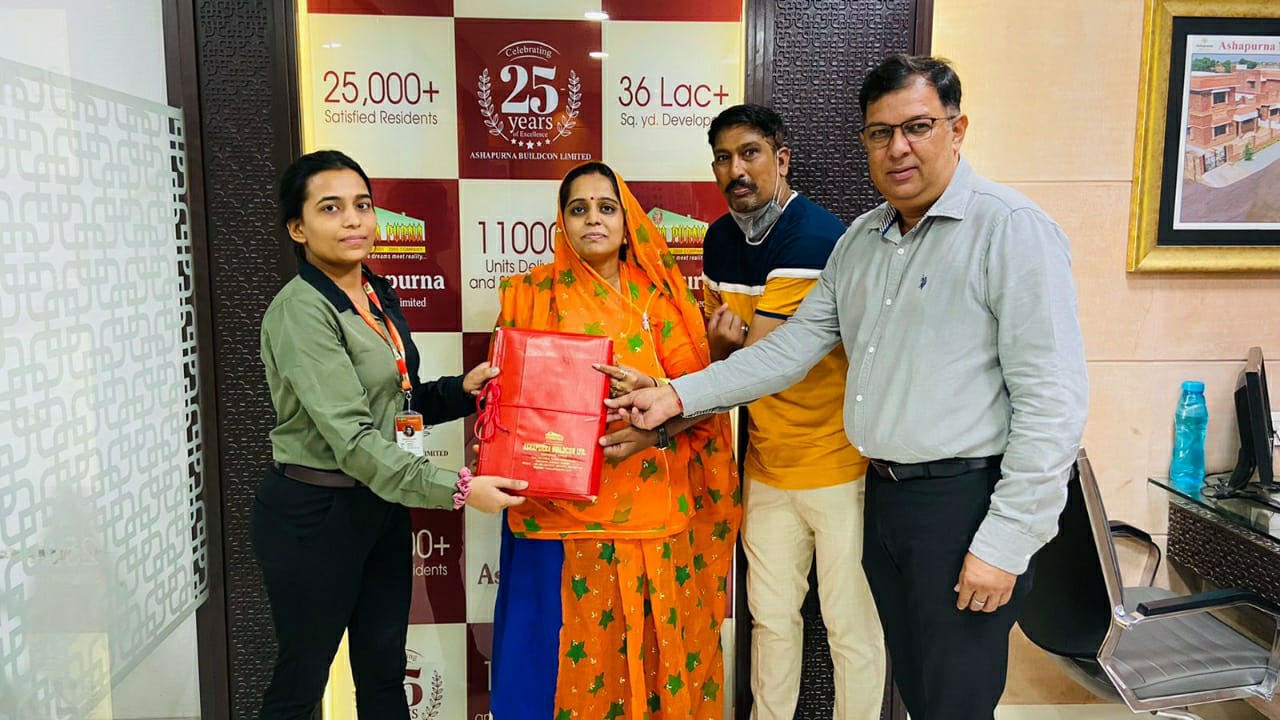In many parts of the world, it is customary for property to be registered in the name of a female family member. There are several reasons for this, but one of the main benefits is that it can help protect the property from being seized by creditors. If you’re thinking about buying property, it’s worth considering registering it in the name of a female family member. Here are some of the benefits of doing so.
Advantages of Using a Female Name When Purchasing Property or Taking Out a Loantand Out?
When you buy a property or take out a loan in the name of a women, like your wife, sister or mother, you can enjoy the following benefits:
- Get a lower interest rate on your loan or property.
- Get approval for a loan or property much faster.
- Get additional benefits and priority service from the bank or other lending institution.
- Help your female family member get ahead in life by giving her the financial security to own a home or take out a loan.
Increased home loan eligibility
Most homes in India are financed through home loans. This is because home loans are an effective and practical way to buy a dream house. But before you finance a property, the bank or NBFC will evaluate your loan eligibility. This depends on your salary. Co-owning a house with your wife can help increase the loan amount because both of your incomes will be considered.
- Increase your loan eligibility by co-owning a house with your wife
- Get the best interest rates and benefits available on the market
- Finance your dream home quickly and easily
- Avoid hassles and get easy approval for your home loan
Home loans at a lower rate
Many banks and NBFCs in India offer home loans with concessional interest rates to women. This encourages women entrepreneurs, executives, and even homemakers to take a home-buying decision. Banks usually prefer giving loans to women because they are seen as being more punctual and sincere in making payments, and less likely to default on their loans. The State Bank of India offers the ‘Her Ghar’ scheme, which waives the processing fee for women home loan applicants.
- Get concessional interest rates on home loans
- Waived processing fees for women home loan applicants
- Seen as being more punctual and sincere in making payments
- Less likely to default on their loans

The prevailing home loan interest rates (floating) for women borrower’s vs others are as follows:
Indian States Where Women Homebuyers Pay Less Stamp Duty
In many Indian States, the stamp duty for women homebuyers is lower than the stamp duty for men. For example, in Rajasthan, there is a 1% reduction in stamp duty for women. In Delhi and Haryana, there is a 2% reduction in the stamp duty payable. This applies to both sole and joint female owners of the property. There is also a lower stamp duty charge even if the property is given as a gift to a female family member.
- Reduce the amount of stamp duty you have to pay when purchasing a property.
- The reduction in stamp duty is offered regardless of whether you are buying a property on your own or with another woman.
- The stamp duty charge is lowered even if the property is gifted to a female relative.
- This incentive makes it cheaper and easier for women to own their own home, which can help improve their financial security and give them more independence.
For example, if you buy a flat for Rs 1 crore in Jaipur, Rajasthan, the stamp duty for a male buyer would be Rs 6 lakh. If two people buy the flat together, the stamp duty would be Rs 5 lakh each. If a woman buys the flat alone, then the stamp duty would be Rs 4 lakh. The Delhi government charges stamp duty of 4 percent from women compared with 6 percent for men and 5 percent for a man and woman as joint owners.
- Save money on stamp duty
- Get the same benefits as men when buying a property
- Women are charged less stamp duty than men
Tax benefits on home loan
Both men and women are allowed to take a tax deduction on the interest they pay for a loan taken to buy or build a home. If the property is owned jointly by a married couple and the wife earns money, then both of them can claim tax deductions separately.
Under section 80C of the Income Tax Act, the maximum deduction allowed for the repayment of the principal amount of a home loan is Rs. 1.5 lakh.
- Get a tax deduction on the interest you pay for home loans.
- If the property is owned jointly by a married couple, both can claim deductions separately.
- This deduction is over and above the standard deduction available under Section 80C of the Income Tax Act
Benefits under PMAY
- PMAY subsidy benefits unmarried girls and women
- No discrimination based on gender or marital status
- Mandatory for at least one female family member to be registered as owner of the house
- Provides subsidy up to Rs 2.67 lakh
If you are applying for a home loan under the PMAY scheme in the MIG 1 or MIG 2 category, you do not need a female co-applicant. The same rule applies if you are applying for a home loan under PMAY from the EWS or LIG category, but the woman must be a co-owner of the property. This rule only applies to newly purchased houses under the scheme, and not for houses that have been constructed on an existing piece of land or for repairs& renovation work of an existing house.
- No female co-applicant needed for home loans under PMAY scheme in MIG 1 or MIG 2 category
- Woman must be co-owner of the property if applying for loan under PMAY from EWS or LIG category
- Applies only to newly purchased houses under the scheme, not for houses that have been constructed on an existing piece of land or for repairs& renovation work of an existing house
Rent on Property
Both men and women can deduct the interest they pay on a loan for their rental property from the income they earn from renting it out. This deduction is in addition to the standard deduction of 30% that is available for rental income.
Secure financial cover
If you buy a house in your wife’s name, it can help protect your financial assets. If you have a business and lose money or go into debt, the government or creditors cannot take your wife’s house to cover the loss, as long as she isn’t a co-owner or guarantor on any loans you have.
Ease up succession issues
If a couple owns a house or property together, they each have the same rights to it if something happens to one of them. That means the other partner can keep the property if the first one dies, and there won’t be any fights with other family members over it. You also don’t have to pay any extra fees when you switch ownership of the property.
- Keep your property and assets when something happens to your partner
- No extra fees when you switch ownership of the property
- Keep your family safe and secure by owning a property together
While buying a house in the name of the wife, one must always remember that:
If she doesn’t have a regular income, the property will be considered as her husband’s assets.
- Property in the name of wife is not benami if bought out of a known source of income.
- If the couple co-owns a property, the rental income generated from such property will attract tax from both the owners separately.
A co-applicant for a home loan is someone who has the same responsibility as the main borrower to pay back the loan. It is not necessary that they are the co-owner of the property, but if there is any dispute over it, they will also be held accountable. Only a blood relative or an immediate family member can be a co-applicant for a home loan. Having a creditworthy co-applicant for a home loan is beneficial because it increases the chances of getting the loan approved and also sometimes, they share the loan burden.
- Increases the chances of loan approval
- Can help share the loan burden
- Shows financial stability and responsibility
The following combinations for co-applicants are accepted:
- Father and son
- Husband and wife
- Father/Mother and unmarried daughter
- Brother and brother
- Son and mother (in case father is no more)
- Daughter in law and Father/Mother in-law- This has been a recent development and depends from bank to bank. The co-applicants need to have a stable income and good credit history.
Unaccepted Combinations:
- Father/Mother and Married Daughter
- Brother and Sister
- Sister and Sister
The biggest advantage of buying a home as a single woman is the feeling of security, stability, and ownership that comes with it. Owning your own place is a good long-term investment that also benefits future generations. When someone has decided to live in a particular place, it is better to buy a house there instead of paying rent every month. Single women who have moved to bigger cities often do thorough research before they purchase property, considering factors such as safety and how easily they can get around.
- Security: Women are looking for apartments with features such as gated communities, CCTV, and security guards.
- Multi-purpose Spaces: An increasing number of women are looking for apartments that have multipurpose spaces which can be used as a study, office, or guest room.
- Nearby Amenities: Proximity to entertainment and fitness facilities is another important factor for women when choosing an apartment.
- Transportation Options: Apartment complexes near railway stations and airports are more attractive to women than those without transportation options.
The downside of being a woman home buyer is that you might face gender discrimination. People might think that you can’t understand the technical or financial aspects of a real estate deal. This isn’t true – real estate is mainly a male area, so they might get patronizing at times. If you’re single, you might also face harsh judgments from society in general who refuse to give property to women. In case of a home loan, the bank might ask you to bring in a co-applicant, which is more likely to happen if you’re married.
- You will not be discriminated against because of your gender
- You will have an easier time getting a home loan
- You can buy property even if you are single
- Many banks and housing finance companies offer products like home loans to women. They might have special rates or other concessions. But sometimes the staff working at these places are not trained to handle the unique questions that single women might have about buying a house. It can be a very risky and financially heavy investment, so it can be stressful trying to do it all by yourself.
- Special rates or concessions for women
- Trained staff to handle unique questions and concerns of single women
- Financial help and advice for making the best decision about a home loan
- Reduced stress and anxiety about making such a big investment
The ‘Her Ghar’ scheme by the State Bank of India is a great example of how financial institutions are looking to help women become homeowners. This, in turn, can have a positive impact on the economy as a whole. There are many benefits to owning a home, and it’s great that both men and women are able to take advantage of them.

